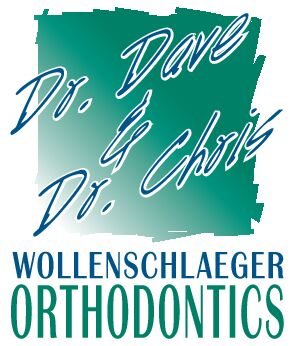
By Akers Editorial
Expert Orthodontics Questions with: Dr. Dave and Dr. Chris

Experts: Dr. Dave and Dr. Chris
Expertise: Wollenschlaeger Orthodontics gives you the confidence to keep smiling.
Your smile is your greeting to the world. It’s also a window to an important part of your dental health — the alignment of your teeth. Not everyone is born with picture perfect teeth. Crooked teeth or spaces may be a source of embarrassment or self-consciousness. Improper alignment of the teeth and jaws is called a “malocclusion.” Malocclusions can contribute to tooth decay and a host of sometimes painful dental disorders. The good news is that orthodontic treatment can correct malocclusions and help you achieve a healthy, beautiful smile that’s good for life®. What would you like to know about orthodontics?
Q: What causes orthodontic problems?
A: Most orthodontic problems (malocclusions) are inherited. Examples of these problems are crowding, spacing, protrusion, extra or missing teeth, and some jaw growth problems. Other problems are acquired as a result of thumb- or finger-sucking, dental disease, accidents, the early or late loss of baby (primary) teeth, or other causes.
Q: How much does treatment cost?
A: The cost of orthodontic treatment depends on many factors, including the severity of the problem, its complexity and length of treatment. Dr. Wollenschlaeger offers a free consultation to discuss treatment options and costs. Many patients find that orthodontic treatment is more affordable today than ever. Dr. Wollenschlaeger offers a variety of payment plans. Employers may offer dental insurance plans with orthodontic benefits, and/or the option to set aside pre-tax dollars in a flexible spending account or other health savings account.

Q: Why is treatment so important?
A: Orthodontic treatment can help create a better bite, making teeth fit better, and decreases the risk of future, and potentially costly dental problems. Crooked and crowded teeth are hard to clean and maintain, and can contribute to tooth enamel wear, difficulty in chewing and/or speaking, and excess stress on supporting bone and gum tissue. Without treatment, many problems simply become worse.
Q: Why select an orthodontist?
A: Orthodontists are dental specialists who diagnose, prevent and treat dental and facial irregularities. They receive an additional two to three years of specialized education beyond dental school to learn the proper way to align and straighten teeth. Only those who successfully complete this formal education may call themselves “orthodontists,” and only orthodontists may be members of the American Association of Orthodontists.








































